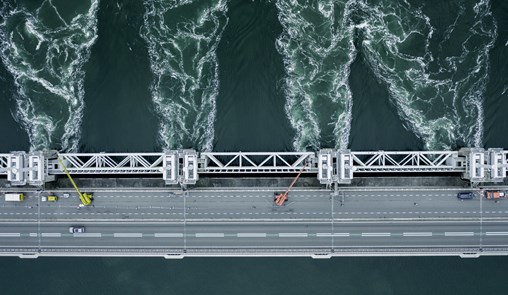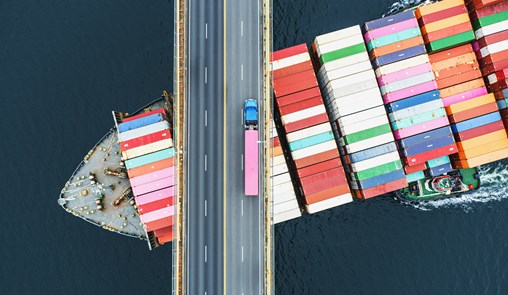As signified by the influx of news reports concerning recent tariff negotiations and developments, import duties no longer benefit from the relative stability they once enjoyed.
Just last week it was announced that China and the European Union would hold talks to negotiate the tariff rates to be imposed on Chinese electric vehicles. And let us not forget, since March 2024, Australia has been benefiting from the removal of Chinese tariffs imposed on wine from 2020 at rates as high as 218%.
Except with respect to anti-dumping duties, Australia’s customs duties have been staid in comparison. Today’s removal of so-called “nuisance” tariffs imposed on 457 products changes all that, being the biggest unilateral reform in 25 years, and something that will be of direct benefit to importers and foreign exporters.
In this article, special counsel Alistair Bridges and lawyer Emily Schilling outline these “nuisance” tariff reforms and emphasise the importance of a comprehensive understanding of not only the applicable tariff rates but also overall compliance with Australia’s tariff classification system.
A nuisance for some, but not others
From 1 July, the duty rate for 457 tariff lines will be set to “free” in the Customs Tariff Act 1995 (Cth) (“Customs Tariff Act”). Items that will benefit from free duty rates are:
- certain foods – including certain vegetables, animal products and grains;
- natural materials – including raw hides, rubber, wood, paper, cotton and fabrics;
- household goods – including cutlery, glassware, ceramics, furniture and toothbrushes;
- machines and electronic items – including fridges, solar water heaters, dishwashers, clothes dryers and agricultural machinery;
- sanitary products; and
- many, many others.
These tariffs have been labelled a “nuisance” because they raised little revenue for Australia and triggered significant administrative and compliance costs for both importers and the Australian Government. The reform takes place in a world where tariff duty costs otherwise seem to be marching haphazardly upward, in many cases by way of “targeting” particular country sources, driven in that direction by economic security fears and national-level competition concerns.
One of the main drivers of these reforms has been unwieldy and inconsistent free trade agreement requirements for country of origin certificates to enable duty-free importation. We are aware of some companies that have elected not to claim duty free importation under FTAs because the administrative requirements were too much of a nuisance themselves.
The removal of duty rates for the 457 tariff lines will result in better competitiveness for foreign exporters in any part of the world and direct duty and compliance cost reductions for importers. This will be a welcome streamlining of importation processes for them.
This is not to say that everyone will be happy with the change. For example, Australia’s FTA partners will now see a benefit, which they negotiated with Australia, made available to countries that are their competitors and who did not have to make any concessions towards Australia to obtain. Similarly, Australian industries producing or manufacturing the same products are not likely to have considered the tariffs to be a nuisance at all. This would particularly be the case for Australian industries producing electric blankets, clothes dryers, chamois leather and instant print film, for instance, as imports of these products were subject to a 5% duty.
Tariff interpretation in a rapidly changing world
To take advantage of the removal of “nuisance” tariffs, exporters and importers need to be aware of same. For companies in the logistics chain, this awareness needs to extend further afield. For example, although tariffs may not change that often, the proper application of the tariff and its interpretive rules to any given product may change, or indeed may never have been carefully analysed by the exporters and importers concerned in the first place. Technological change and historical documents are not good bedfellows. Exporters should ask themselves whether they are satisfied with tariff rulings in other jurisdictions, and whether they should put up with the same treatment here, or whether the opposite applies and they wish to reverse Australian interpretations based on a favourable reinterpretation in their home country.
Customs due diligence is an activity forced upon exporters and importers by reason of self-assessment and the punitive penalties that apply if you “get it wrong”. Nonetheless, due diligence should not be considered a “negative” thing to engage in, because it has the prospect of making money and not just avoiding fines. Importers are duty-bound to ensure that they
- continually review the appropriateness of selected tariff classifications and update classifications when required or advantageous; and
- avoid or minimise the financial cost of misclassification.
Amendments to the Customs Tariff Act may be brought about by product advancements necessitating that new tariff lines be included, political influences/preferences or even the desire to streamline Australia’s import system, as is the case here.
Given the “living” nature of the Customs Tariff Act, it follows that selecting a tariff classification is not a one-and-done process. Importers should continually review the appropriateness of a selected tariff classification to ensure that the classification is both correct, not resulting in an under or over payment of duties, and that it remains appropriate. This process should be undertaken as and when required, particularly whenever there have been changes to a product’s construction, material or function.
It could be the case that a classification which was appropriate is no longer appropriate because a new tariff line has been introduced that more specifically covers the product. It could be the case that while the selected tariff remains appropriate, the importer has not been taking advantage of preferential or concessional duty rates and so was overpaying on duties for its imports. Or, it could be that an importer has misclassified its products due to misunderstanding Australia’s tariff system, resulting in an underpayment of duties.
Not every mistake is detected, but if one is…
Penalties that may arise from selecting an “incorrect” tariff classification are high, and official audits are expensive in other ways too. Importers face financial penalties for providing “false or misleading statements” in import declarations. A “false or misleading” statement includes a statement that a product is classified to a certain tariff line when, according to the legislation, rules for interpretation and Australian precedent, the product does not belong to the classification. Fines may be imposed regardless of whether the “misclassification” has resulted in duty being underpaid or not. For misclassifications resulting in a loss of duty, the fine is AUD18,780 per statement (each consignment line) and the value of the duty shortfall. For misclassifications not resulting in a loss of duty, the fine is AUD18,780 per statement.
As a mitigation strategy, importers that proactively identify and voluntarily disclose misclassifications to Australian Border Force will avoid the penalties described above. It pays to be diligent and proactive, even in the face of errors.
Avoiding the “nuisance” of tariff classification
By staying on top of changes and continually reviewing the tariff classifications selected for products, an importer shields itself from exposure to financial penalties. To this end, importers who are unsure of the tariff they should select for their imports or are unfamiliar with Australia’s system, would do well to obtain legal advice on tariff interpretation, as such interpretations are inherently and intensely a legal exercise, and to engage an Australian customs broker for logistical support and the computer interface that is essential for the safe and accurate entry of products into Australia.
Doing so will avoid the much greater “nuisance” associated with Australia’s tariff system – namely, large fines and even greater costs than everyday compliance.
Moulis Legal is well-versed in assisting importers classify products, undertake due diligence activities, develop mitigation strategies and engage in best practice compliance. If you would like any details on the reforms or Australia’s broader tariff system, please contact our regulatory team.
This memo presents an overview and commentary of the subject matter. It is not provided in the context of a solicitor-client relationship and no duty of care is assumed or accepted. It does not constitute legal advice.










